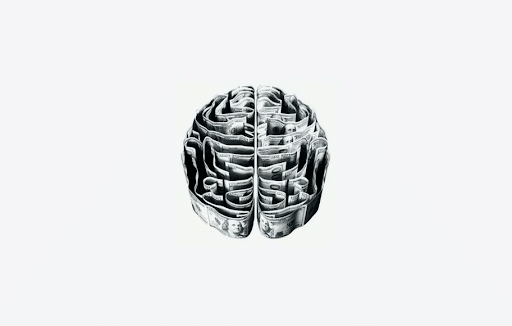Neurocoaching is widely being touted as the ‘next level’ of personal coaching.
In this guide, you’ll be able to research what neurocoaching is, who might benefit from it and how to launch your own neuro coaching practice.
So, let’s dive in.

1. What’s A Neurocoach?
A neurocoach helps their clients to self-improve using tools and exercises based on studies of the human brain.
Their main goal is to help people gain a better understanding of how their brain functions, and make improvements to this, so they can perform better at their daily tasks.
They will be applying neuroscience within their coaching programs. In order to do this, they must have a deeper understanding of the brain’s structure and processes than a traditional life coach.
2. Benefits Of Working With A Neurocoach
With neurocoaching, you’ll be able to improve your: willpower, motivation, focus, memory, mindfulness, emotions, imagination, ability to learn and more.
With this improved brain power, it’s highly likely that you’ll become far more productive. You’ll be able to perform better as an employee or business leader.
With improved emotional intelligence, you should be able to manage your stress better. You should feel more self-empowered to be the boss of your own life, rather than being a slave of your emotions.
All-in-all, you should be able to enjoy your day-to-day life living in your body with your brain.
3. Who Might Work With A Neurocoach?

Anyone who wants to improve their cognitive performance might be interested in neuro coaching.
This form of coaching might be particularly appealing to entrepreneurs and business leaders, who stand to make the most profit from increased performance in the workplace.
Professional athletes, members of the military, or any person who wants to reach peak performance each day would stand to benefit a lot.
You might think that neuro coaching is only for clients who identified a flaw in their memory, concentration or willpower, for example.
But that’s not true.
While most people might believe their brains are functioning well, the truth is: most are nowhere near their full potential. Most people’s brains are blocking their path to success – and they don’t even know it. After a couple of neurocoaching sessions, that’s likely to become clear.
With that said, neurocoaches also commonly work with victims of brain damage or stroke to aid their recovery. The great news is: thanks to advances in brain science, these clients are far more likely to make a great recovery than in the past.
4. What Is A Neuro Transformational Coach?
A Neuro Transformational Coach will use neurocoaching tools to help clients transform into the best version of themselves.
They work with clients who want to improve their personal and professional lives, using coaching techniques based on brain science.
Transformational Neurocoaching
To get a better idea of the coaching conversation that may occur, see this guide on transformation coaching.
Neuroscience Consciousness And Transformational Coaching
When looking around for the best neurocoach, you’ll notice that coaches will brand themselves slightly differently.
Neuroscience Consciousness And Transformational Coaching is one such example of this.
Indeed, you should expect consciousness (awareness of how your brain works) and transformation (self-improvement) to be a major part of all neurocoaching programs.
The main factors to consider when choosing your neuro coach is your coach’s qualifications, experience and whether you have a good rapport in your initial consultation.
5. What Is Brain Based Coaching?
With all traditional coaching efforts, it is the client who is in charge of their own goal-setting. They will set the agenda and decide what they want to be learning.
This is the same brain-based coaching, although the coach is more likely to assist clients using exercises to assess the way their brain works.
For example, the coach is likely to teach their client about the concept of brain plasticity and the associated neural patterns.
They will also give the clients the tools and exercises that allow them to gain unique insights into the way they think – and to improve this.
Many clients testify that this nuerocoaching model provides an accelerated method of self-change, compared to traditional life coaching.
6. What Is Brain Plasticity?
Brain plasticity is the idea that our brains can change based on our behavior over time. What’s more, we can do this at any age, not just childhood.
According to neuro-scientific research, we can alter our brains chemically (for short-term change) or structurally (for long-term change).
Neuro Coach Method
Neurocoaching interventions allow us to target specific domains of the brain to create ‘windows of plasticity’ and form greater connectivity within these brain regions. These targeted interventions help us to make lasting improvements in the way we execute tasks or manage our emotions, for example.
This form of brain-based learning is unique to neurocoaching. It’s unlikely to be a part of any ‘traditional’ coaching methods.
7. Neuro Coaching Vs Somatic Coaching
Neurocoaching falls under the umbrella of natural health, as does somatic coaching.
Neurocoaching focuses on the brain’s impact on a client’s life. Somatic coaching is focused on how the body impacts a client’s life.
A neuro coach will help clients make changes to their brain, whereas a somatic coach will encourage physical changes in order to help a client make mental changes.
There is some overlap in these coaching techniques, however.
All coaches are taught to evaluate the body’s energy and movements to gain clues about a client’s well being.
There are plenty of clues you can gain about someone’s well-being by the way they carry themselves.
It’s widely agreed among all types of coaches that the mind affects the body and vice-versa. Our physical health affects our mental health. Stress lowers energy levels and can affect our bodies in many other negative ways. So, you shouldn’t be surprised if a neurocoaching model also includes physical exercises.
8. Neuro Coaching Vs Mindset Coaching
There is significant overlap between these two forms of coaching too.
Mindset Coaching will mostly focus on your confidence and overall attitude to life. It’ll help you improve your motivation, willpower and control your stress, among other skills.
Neuro coaching goes a step further using evidence-based strategies to help you improve your focus, memory and learning abilities.
9. Can Neuro Coaching Improve Your Confidence?
Confidence and self-belief is formed in the brain – and neuro coaching can therefore help you to improve this part of your mindset.
A neuro coach will be able to explore the mental blocks that might be affecting your confidence in your personal or professional life.
Better yet, this form of coaching will give you the tools to help you improve certain skills – and this should create a natural self-efficacy as you witness your own success.

10. How Do You Become A Neurocoach?
Neurocoaching – and any other type of coaching – is part of a self-regulated industry. There’s nothing stopping you from launching a website and marketing your neurocoaching business today.
However, in order to gain the knowledge, skill and trust to become a success in this career, you’ll need to gain a neurocoaching certification.
Certified Neuro Transformational Coach
Any person who spends a couple of minutes learning about the best neurocoaching business will quickly understand they need a certified coach.
It’s highly recommended you enrol in a course that’s certified by the International Coach Federation (ICF). These are the most reputable courses available – and will ensure you’re learning all the skills you need to become a great neurocoach and launch a successful neurocoaching business.
For more guidance, check out these NEW iNLP Center Reviews – All Programs.
11. Neurocoach Salary
There isn’t too much reliable data available to help you estimate the money you can earn by launching a neurocoaching business.
As a self-employed coach, you’ll be free to set your own rates. The amount you can successfully charge will depend on the demand for your services, as well as your perceived skill, knowledge and experience.
With that said, neuro coaches are a new breed of ‘specialist’ coaches and might therefore expect to be able to charge more than a general life coach. At this time, there aren’t as many specialist neuro coaches out there – and less competition often means coaches can successfully justify the extra cost of their services.
12. How To Become Your Own Neuro Coach
The fastest way to make improvements to your brain is to invest in one-on-one neuro coaching.
However, there are various tools and techniques you can use to identify and improve your own inefficient thinking without the help of a coach.
If you’re interested in learning more about this skill, see this guide on Ways to be Your Own Brain Coach.
Any More Questions About How Neuro Coaching Techniques Can Improve Our Personal And Professional Lives?
Thanks for reading my article. I hope you can click away satisfied with your new knowledge about what neuro coaches do and the amazing results they can provide.
If you’re interested in learning more about the impact that neurocoaching can have on your brain, feel free to ask a question in the comments below.
It will be great to hear from you.
Related Posts
What Makes A Narcissist Panic? – 15 Proven Strategies
